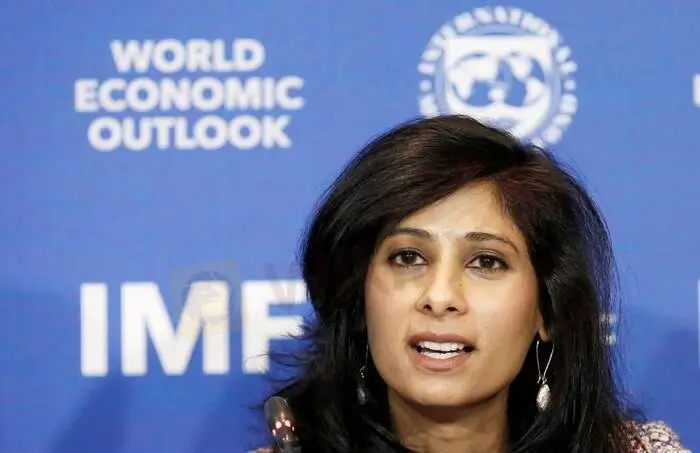简体中文
繁體中文
English
Pусский
日本語
ภาษาไทย
Tiếng Việt
Bahasa Indonesia
Español
हिन्दी
Filippiiniläinen
Français
Deutsch
Português
Türkçe
한국어
العربية
IMF warns Russia sanctions threaten to chip away at dollar dominance – FT
Abstract:Financial sanctions imposed on Russia threaten to gradually dilute the dominance of the U.S. dollar and could result in a more fragmented international monetary system, Gita Gopinath, IMF’s First Deputy Managing Director, told The Financial Times.
Financial sanctions imposed on Russia threaten to gradually dilute the dominance of the U.S. dollar and could result in a more fragmented international monetary system, Gita Gopinath, IMFs First Deputy Managing Director, told The Financial Times.

Russia has been hit with a plethora of sanctions from the United States and its allies for its late-February invasion of Ukraine. Russia has called the invasion a ‘special operation’ to disarm its neighbour.
“The dollar would remain the major global currency even in that landscape but fragmentation at a smaller level is certainly quite possible,” Gopinath told the newspaper in an interview, adding that some countries are already renegotiating the currency in which they get paid for trade.
She said that the war will also spur the adoption of digital finance, from cryptocurrencies to stablecoins and central bank digital currencies.
The IMF did not immediately respond to a Reuters request for comment.
Gopinath told the FT that the greater use of other currencies in global trade would lead to further diversification of the reserve assets held by national central banks.
She had earlier said the sanctions against Russia do not foreshadow the demise of the dollar as the reserve currency and that the war in Ukraine will slow global economic growth but will not cause a global recession.
(Reporting by Juby Babu in Bengaluru; Editing by Muralikumar Anantharaman)
Disclaimer:
The views in this article only represent the author's personal views, and do not constitute investment advice on this platform. This platform does not guarantee the accuracy, completeness and timeliness of the information in the article, and will not be liable for any loss caused by the use of or reliance on the information in the article.
WikiFX Broker
Latest News
SQUARED FINANCIAL: Your Friend or Foe?
Big News! UK 30-Year Bond Yields Soar to 25-Year High!
High-Potential Investments: Top 10 Stocks to Watch in 2025
Why Is Nvidia Making Headlines Everywhere Today?
Discover How Your Trading Personality Shapes Success
US Dollar Insights: Key FX Trends You Need to Know
FINRA Charges UBS $1.1 Million for a Decade of False Trade Confirmations
BI Apprehends Japanese Scam Leader in Manila
Bitcoin in 2025: The Opportunities and Challenges Ahead
Join the Event & Level Up Your Forex Journey
Currency Calculator






